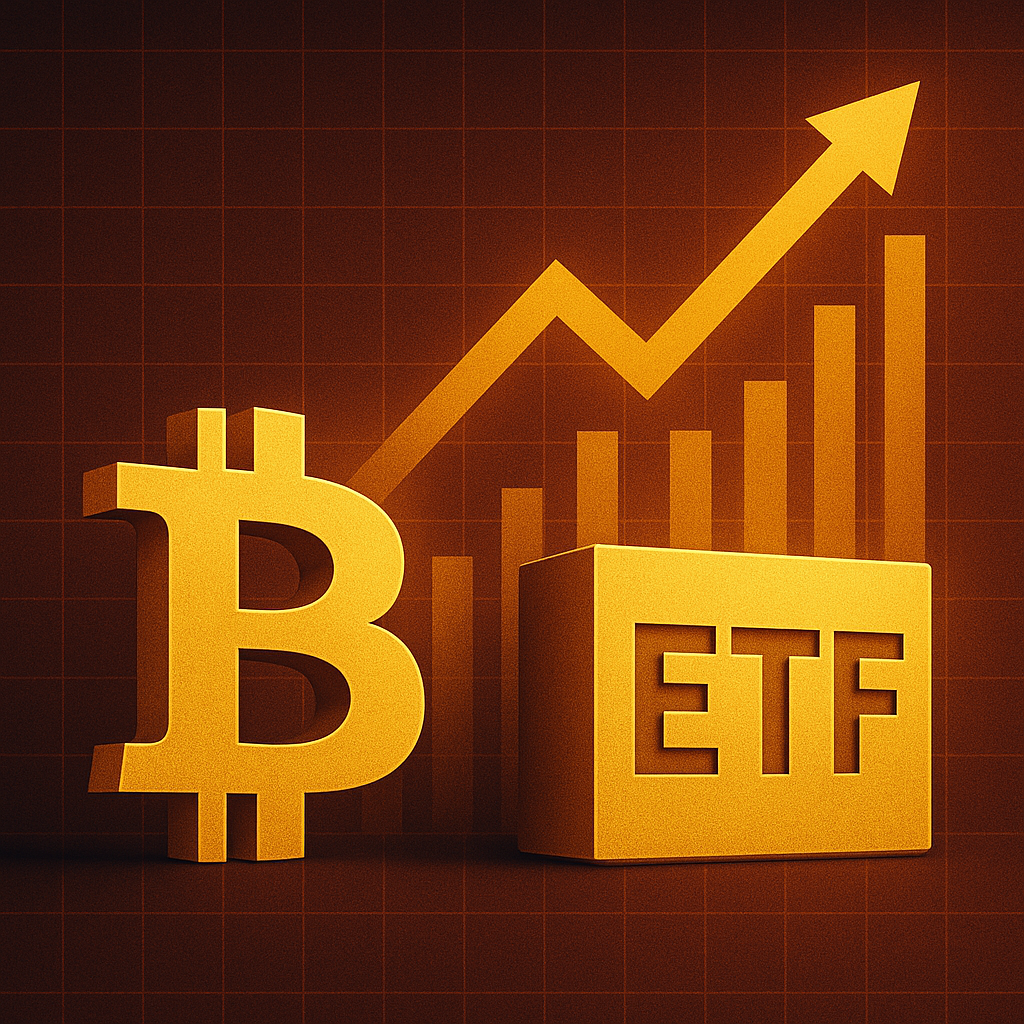Retail Investors Just Got a Front Row Seat to Bitcoin’s Next Chapter
The line between traditional finance and digital assets continues to blur as Jacobi Asset Management officially opens its Bitcoin ETF to retail investors, following long-awaited regulatory approval. This milestone move marks a pivotal expansion of mainstream crypto access—offering everyday investors a regulated, exchange-traded path into Bitcoin without the friction of wallets, keys, or crypto exchanges.
The ETF, originally launched for institutional investors in 2023, is now accessible via traditional brokerage platforms, democratizing exposure to Bitcoin in a way that could reshape market participation. As reported by Reuters and TradingView, this development is part of a broader global push to legitimize and integrate crypto assets into the financial mainstream.
Why This Matters for Investors
This ETF expansion isn’t just symbolic—it has real implications for liquidity, legitimacy, and long-term adoption. By allowing retail participation, the Bitcoin ETF stands to inject fresh capital into the market while reducing entry barriers. For investors, it represents a safer, more convenient alternative to direct crypto ownership, especially for those wary of digital asset custody or regulatory ambiguity.
According to Quantum Zeitgeist, Bitcoin ETFs could account for 15–25% of total BTC market volume within five years if adoption continues at current rates. That projection aligns with earlier trends seen in the gold and commodity ETF markets, which helped to stabilize pricing and attract longer-term institutional capital.
Institutional to Individual: A Structural Shift in Crypto Access
Jacobi’s ETF debut follows a growing global trend of regulated crypto fund offerings, including spot Bitcoin ETF approvals in the U.S., Canada, and parts of Europe. These products enable investors to gain exposure to Bitcoin through regulated stock exchanges, sidestepping the often complex and risk-prone experience of managing digital wallets.
While the ETF itself holds Bitcoin on behalf of investors, its structure offers key advantages:
- Transparent pricing aligned with spot markets.
- Daily liquidity through stock exchanges.
- Regulatory oversight that adds institutional credibility.
For retail investors new to crypto, this framework offers a way to participate in digital asset markets with traditional investing tools—a major shift in accessibility and perception.
Regulatory Winds Turning Favorable
Perhaps most significantly, Jacobi’s ETF approval reflects a broader regulatory softening toward crypto in key jurisdictions. After years of cautious optimism and outright resistance, financial regulators in the UK and EU have begun to support structured crypto products as part of modern financial portfolios.
“The green light for retail access is a sign that regulators are increasingly recognizing Bitcoin’s role as a legitimate asset class,” said a London-based analyst at HSBC, speaking to Reuters. “It also signals trust in the ETF structure to manage the volatility and risks inherent to crypto markets.”
Still, the regulatory environment remains fragmented. The U.S. SEC continues to scrutinize spot Bitcoin ETFs, even as futures-based offerings trade freely. But the Jacobi approval could add pressure to U.S. regulators to expand access further.
Market Reaction and Future Outlook
The crypto market responded positively to the ETF announcement, with Bitcoin briefly breaking above $72,000 on June 3 before consolidating. Analysts point to renewed momentum in the crypto sector, buoyed by retail re-engagement, improving macro conditions, and rising expectations of central bank rate cuts later this year.
Looking forward, retail-targeted ETFs could pave the way for broader adoption of crypto-based products, including Ethereum ETFs, crypto index funds, and eventually tokenized asset portfolios. As more capital enters the space, market efficiency and price discovery could improve, making the sector more attractive to long-term investors.
Key Investment Insight
The launch of retail-accessible Bitcoin ETFs marks a major inflection point in crypto adoption. Investors should:
- Monitor ETF inflows and outflows to gauge sentiment and demand.
- Watch regulatory developments, particularly in the U.S. and Asia.
- Consider diversified exposure via ETFs for crypto allocation without custody risk.
ETFs like Jacobi’s offer a regulated bridge between traditional markets and crypto—and that bridge is now open to millions of new participants.
Crypto Has Entered the Mainstream
With Bitcoin ETFs now in the hands of everyday investors, the crypto market is no longer the domain of early adopters and tech-savvy traders. We’re witnessing the institutionalization of digital assets, with retail investors along for the ride.
For those seeking smart, accessible exposure to Bitcoin’s long-term trajectory, regulated ETFs represent one of the clearest entry points yet.
Stay with MoneyNews.Today for daily insights and updates on the financial moves that shape your portfolio.





